Planning on renting a car in Ireland? Great choice! Ireland is best explored by road-tripping, so it is a good idea to rent a car if you are visiting from overseas. Doing so enables you to travel around at your leisure and go to places you otherwise would not be able to get to.
That said, before you rent a vehicle and start driving around Ireland, you probably have a few questions you want answered. Well, that’s where I come in. I’m living in Ireland (raised in Cork) and have rented a car on many occasions. So, I know the rules of the road here, the best road trips to take, and what’s the best car rental agency!
Below, you will find a detailed list of 12 things you should know before renting a car in Ireland. Hopefully, it will make the process much easier for you.
1. Is it worth renting a car in Ireland?

Yes, it is 100% worth renting a car in Ireland. And although it can be expensive to do so, you will be able to go wherever you want, whenever you want, without being constrained by the timetable of a guided tour.
If you love road trips, then it’s a no-brainer to rent a car in Ireland. After all, Ireland is known as one of the most stunningly beautiful countries in the world. And the best way to get to its hidden gem spots is by hiring a car. Public transport in Ireland is limited and typically just travels between the major towns, villages, and cities in the country!
As a local, I’ve been on heaps of Ireland road trips over the years and realized that there is just so much you can’t see without a car! Even if you only have a short amount of time, even with just 2 days in Dublin. It’s still worth it to rent a car to easily access my favorite parts of Dublin like Howth and Monkstown!
Aside from transportation, having access to rental cars also provides you with a place to store your belongings. This means you won’t have to lug luggage around everywhere. Plus, it offers shelter, which can be very handy if the rain or wind picks up when you are out and about.
Related Read: Check out my guide to spending 3 Days in Cork, Ireland
2. Where can you go?
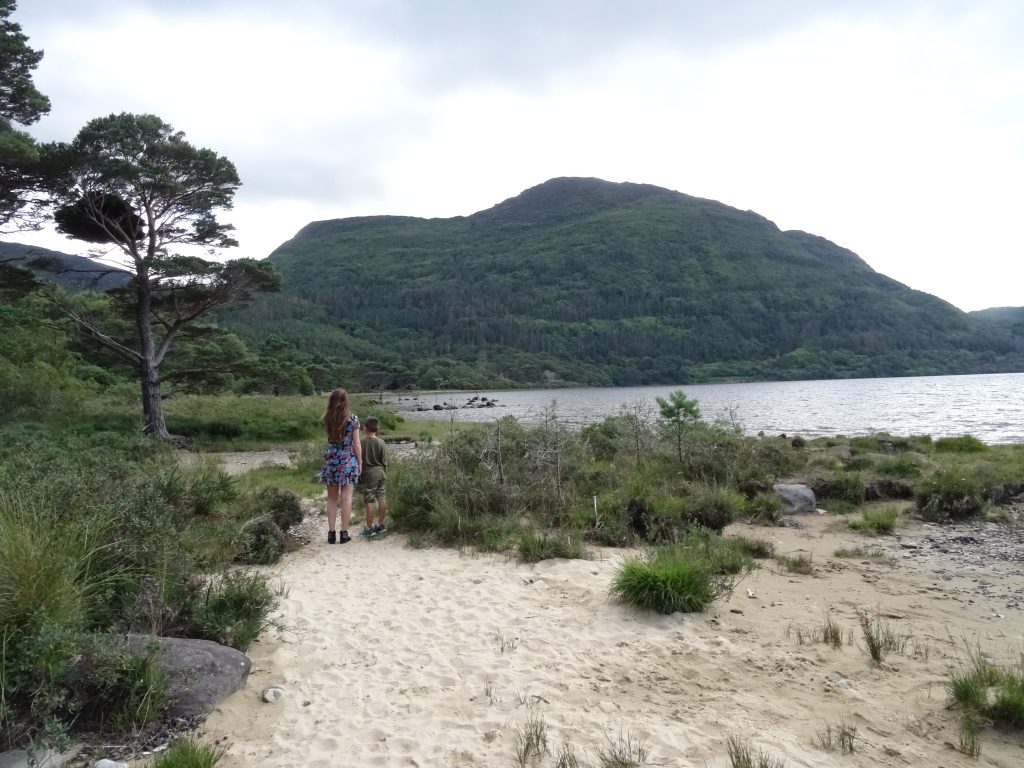
If you have a rental car in Ireland, it is fair to say the world (or island) is your oyster. Ireland is renowned for its scenic driving routes. And there are loads of epic drives that you can embark on that showcase the country’s incredible natural beauty and rich history.
Of course, the Wild Atlantic Way is one of the most famous. And it’s my personal favorite Irish road trip. The Wild Atlantic Way runs from Kinsale in West Cork all the way to Donegal. At 2,500 km long, it is the longest coastal driving route in the world.
Another favorite drive of mine is the astoundingly beautiful Ring of Kerry. Which is 180 km long and starts in Killarney (one of the must-visit towns in Ireland). Some must-stops along the Ring of Kerry include Killarney National Park, Glenbeigh, Caherdaniel, Sneem, and Kenmare.
This 14 day Ireland road trip covers most of Ireland’s most beautiful sights.
The Slea Head Drive, which starts and ends in the vibrant town of Dingle, is also super-popular and for good reason. It offers what I reckon is the best coastal scenery in the whole country!
In Northern Ireland, the Causeway Coast Drive is an absolute must-do. It begins in Belfast and ends in Derry and passes through the nine Glens of Antrim and the world-famous Giant’s Causeway.
Related Read: Check out the best free things to do in Cork here!
3. Requirements for renting a vehicle in Ireland
The most important thing you will need if renting a vehicle in Ireland is a valid driver’s license. No company will allow you to do so without one. If you are driving with an American license or hold one from the UK or Australia, make sure the license number and photo are clearly visible.
However, if you are traveling from a non-English-speaking country, you might want to get an international driver’s license to make the rental process easier.
It is worth noting that while the official driving age in Ireland is 17, you will find it difficult to find a car hire company that will rent a vehicle to anyone under the age of 25.
Each company has different terms and conditions, so you should be fully aware of them. Additionally, you might also need a valid credit card if you don’t take out full coverage car insurance with the rental company. Rental companies will want to keep a credit card on file as a holding deposit.
If you have a debit card, you will be charged a holding fee of €250. Please note that some companies do not accept a debit card.
4. How to reduce costs when renting a car in Ireland
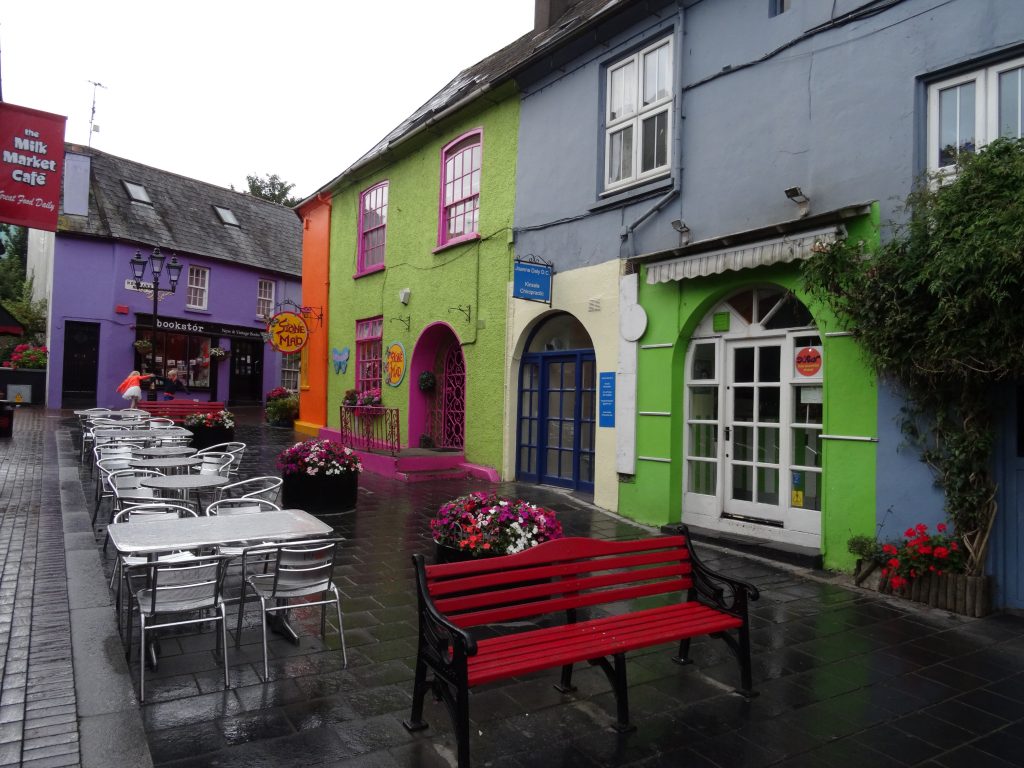
The cost of renting a car in Ireland can be expensive. However, there are some ways you can save money. We tend to always book our rental car through Discover Cars. This is a search engine for rental cars and allows you to filter by price if you’re on a budget or by vehicle type if there’s a specific car you’re after.
You should always try to rent your vehicle from major cities such as Dublin, Cork, Galway, and Limerick. And in Northern Ireland from Belfast or Derry. Generally speaking, car hire companies in smaller cities tend to have fewer and more expensive options.
As you would expect, hiring a car in the low tourist season months of November to February will be cheaper than if you book one in the height of summer – between June and September.
Another good way to save money is to book a small, manual (aka stick shift) car. They tend to be cheaper than electric cars, automatic cars, or a 4WD. And they’re much easier to drive along the notoriously narrow driving routes like the Ring of Kerry and the Slea Head Drive.
You should also try to return the car to the same location in which you picked it up, as it tends to be more expensive to drop it off at another.
My top tip: Book as small a car as you can manage! The non-motorway roads in Ireland (regional roads and local roads) are notoriously narrow. We booked a Seat Lyon twice here in Ireland and found it much easier to drive than say a SUV or other large vehicle!
5. How much does it cost to rent a car in Ireland?
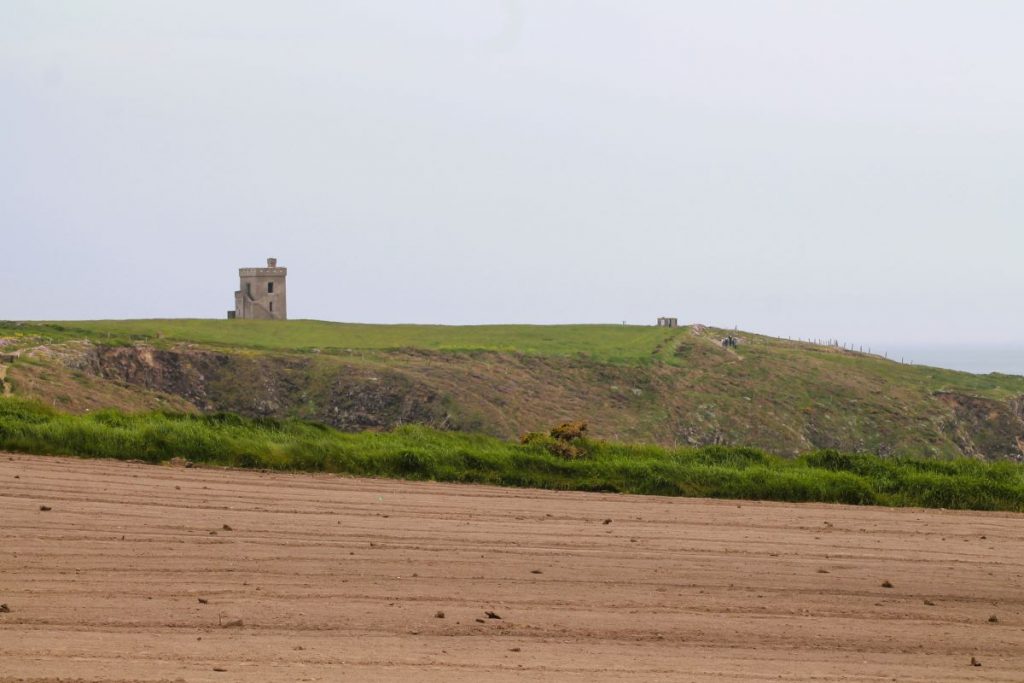
The cost of renting a car in Ireland depends on a few factors, including the company you are hiring from, the time of year you want to do so, what vehicle you want to drive, and how long you want to reserve it for.
Generally speaking, you can expect to pay around €300 per week for a manual (stick shift) economy car, this will rise to around €350 during the peak months of June, July and, August. For an automatic economy car you’re looking at around €420 per week, again add on an extra €50 per week if you plan to rent during the peak season.
If you need bigger trunk space then your best bet is to hire an SUV. For a manual SUV the average weekly rate is around €430 while an automatic SUV is a lot more at approximately €520 per week.
Purchasing additional insurance is compulsory when renting a car in Ireland – you can either purchase it from the rental agency or use your credit card (more on that below).
Overall, the longer you choose to rent a vehicle, the most cost-effective it will be for you. Therefore, it is a good idea to plan one big road trip or a few in clusters to reduce the amount you will have to fork out.
We tend to always book our rental car through Discover Cars – which is a search engine for rental cars and allows you to filter by price if you’re on a budget or by vehicle type if there’s a specific car you’re after. I’ve tried many times to rent direct with the companies, and it took me a long time to filter through each company.
6. Tips for driving in Ireland

Just like in the UK, Australia, and New Zealand, they drive on the left-hand side in Ireland. So, that means that the steering wheel sits on the right-hand side of the car. Don’t be surprised if you try to get into the wrong door for much of the first day! Moreover, if you are driving a manual (which most rental cars here are), the gearstick will be on the opposite side. So it will take some time to get used to it.
Most of the roads in Ireland that link towns and cities are in good condition, so you should find them easy to drive. However, in more rural areas, some of the roads can be very narrow, twisty, and dotted with potholes. Hence, it pays to drive cautiously when traveling on those. Plus, there is little to no shoulder on these roads, so you have to be careful not to drive into the ditch!
It is worth noting that in some rural areas, you might experience gravel roads or really narrow roads with grass growing down the middle (if you’ve been to rural Ireland, you’ll know what I mean).
If you decide to rent an electric vehicle, do not worry. There are plenty of charge points throughout the country. They are most commonly found at gas stations (called petrol stations here).
As for fueling up in Ireland, you will do so at a petrol station. Just be careful – the green pump is for unleaded and the black pump is for diesel. They should be clearly marked as such. Currently, the price of petrol per liter is 171 cent and the price of diesel is 165 cent per liter.
Practice makes perfect!
Because I’m someone who likes to be prepared when I travel, I’ve recently checked out Tripiamo’s Ireland Driving Guide. It’s a video driving guide that is specifically designed to teach you how to navigate Ireland’s challenging roads. It’s validated by the Irish School of Motoring and by completing this detailed driving guide (there are 11 sections) you’ll feel confident to tackle driving in Ireland. The course costs just $39.99 USD – a worthy investment, in my opinion!
7. You may be able to save money on car insurance with your credit card
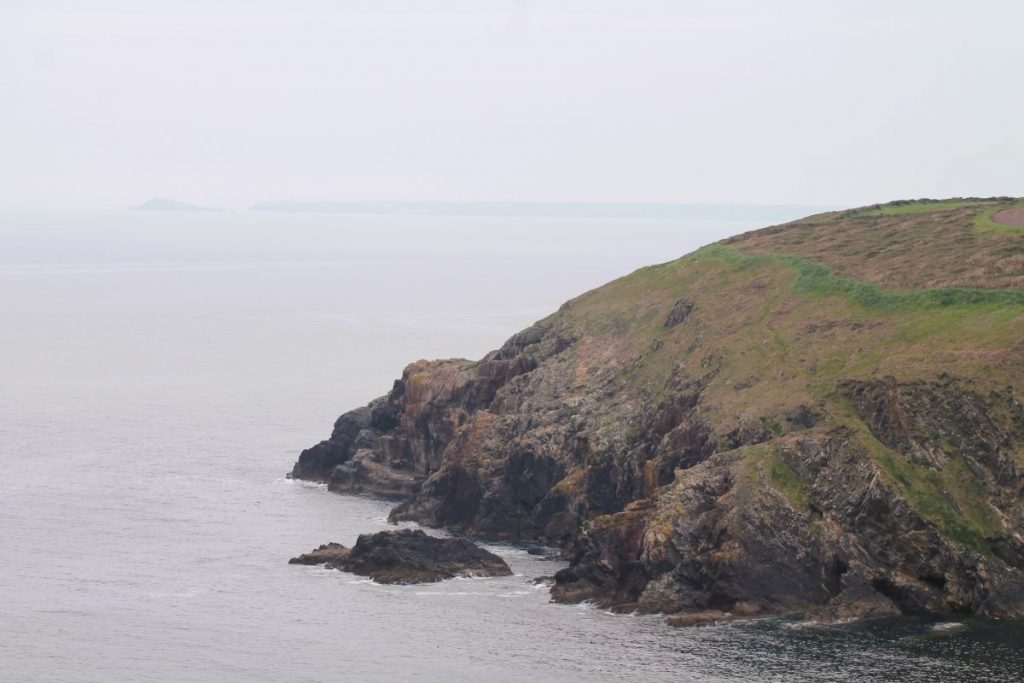
When renting a car in Ireland we highly recommend selecting fully comprehensive car insurance. As I said, the roads and car parking spaces in Ireland are narrow so it will quell your fears of getting a bump or scratch.
And a lot of the time even if you have selected fully comprehensive car insurance when you booked, they will often try to upsell you when you get to the counter to collect your car. So, be prepared for this. Because we selected the highest coverage available when we booked, we chose to only upgrade to glass and tire cover which was a minimal amount extra.
Will your credit card cover you for Ireland?
But before you purchase insurance, it is a good idea to check if your credit card already covers you. There are limited credit cards that offer rental car coverage in Ireland – I know that Chase Sapphire and the American Express Gold Card do offer coverage in Ireland for rental cars. However, keep in mind that if you decline the insurance offered by the rental car company they will place a hold on your card. And then if you do have an accident you will need to pay for it from your own pocket and your credit card will refund you.
Likewise, your travel insurance provider might safeguard you. Therefore, you should refer to them to see what you are already protected for.
This is how we find the best travel insurance for our trip, it’s a search engine for travel insurance companies so you can find the best travel insurance for your trip. On their site you can compare the plans side by side so you can get the best insurance for your particular trip! As I always say, no trip is the same so your travel insurance shouldn’t be too!
8. Take photos of the car before driving off
Before renting a car, most rental companies will do an inspection of it with you, which serves as a baseline to measure any dints or damage that might occur when you drive it.
You should now take photos of the vehicle yourself and do a thorough once-over so you are aware of all the scratches, marks, and bumps it currently has.
By doing this, you will be able to prove that they were already on the vehicle when you hired it, if they try to charge you for them.
It is also a good idea to take a photo of the mileage meter if you are driving a petrol car to make sure it matches the records you are given by the company.
9. Road rules in Ireland
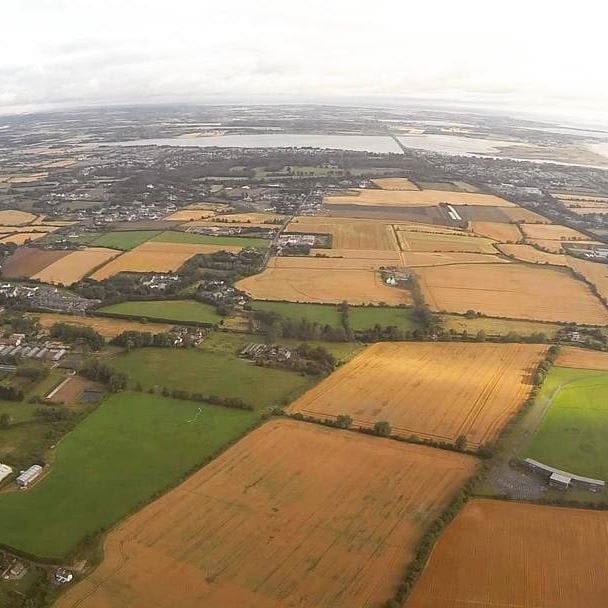
Ireland has some very strict road rules in place. Therefore, you should take the time to familiarise yourself with some of them to ensure you don’t break any rules that might cause you to be stopped by the gardai (police).
Speed limits are in kilometers, with 50 km/h being the limit in built-up and urban areas and 100 km/h on national roads. On motorways, the speed limit is 120 km/h and on non-national roads the speed limit is 80 km/h. Seatbelts are mandatory for all passengers in the vehicle, including those in the backseats. Additionally, all children under 150 cm in height or 36 kg (79 lbs) in weight must use a car seat.
You are strongly recommended not to drink any alcohol and then drive. The limit is a BAC of 50mg. This means 50 milligrams of alcohol per 100 milliliters of blood.
Using mobile phones while you drive is also illegal, so if you need to make a call, either pull over somewhere safe or use hands-free or Bluetooth.
Related Read: If you’re planning to visit Ireland with kids you may be interested to read the best things to do in Cork with Kids!
10. Are there toll roads in Ireland?
Yes, they do have some toll roads in Ireland. These are typically paid for at the barrier of the toll. However, the M50 is the exception to this. You must pay for this before 8 pm the next day by paying online, in branded Payzone outlets, or by calling 1890 501050.
Car hire companies are not obliged to remind you about paying the M50 toll charge, though most will give you a courtesy heads-up.
There are no toll roads in Northern Ireland.
11. What extras can you get with a rental car in Ireland?
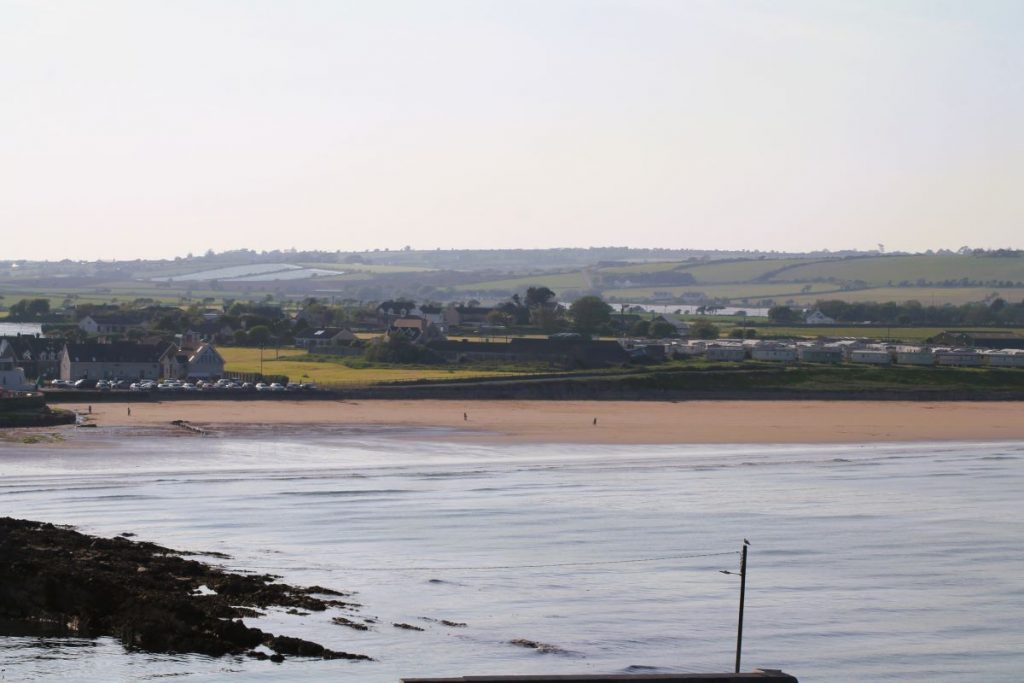
There are some optional extras you might want to consider when renting a car in Ireland.
Those extras include child seats and GPS (some cars do come with this). But it’s worth double-checking with the rental company. I do highly recommend adding GPS to your booking if you’re not familiar with driving in Ireland. You can also add on additional drivers, which might be something for you to consider – if you fancy being a passenger and taking in the scenery for a while. Another reason I use DiscoverCars is because it has a filter to see prices based on the number of drivers.
12. What happens if you get in an accident?
If you get in an accident, the first thing you should do is remain calm and not panic.
Should the accident be a minor one, try to move to a safe part of the road or parking area. Then if the other person is not being aggressive or intimidating, exchange details with them including their name, phone number, and car registration. Once you have done that you will be able to continue on your way. However you should notify your car hire company immediately to keep them in the loop.
Should the accident be more serious and require emergency services like the police or ambulance to be called then you should phone 999 or 112 immediately. You should also let your rental company know as soon as possible as they will be able to advise you on what you will need to do next. It will differ between companies.
Thanks for Reading!

While you’re here why not check out my most popular Irish blog posts, some of my favourites include:
My guide for moving to Ireland
The best beaches you must visit in West Cork
15 Best Free Things to do in Cork City
Why Moving Out of Your Hometown is the Best Thing You Can Do
Last Updated on November 29, 2024 by snaphappytravel
